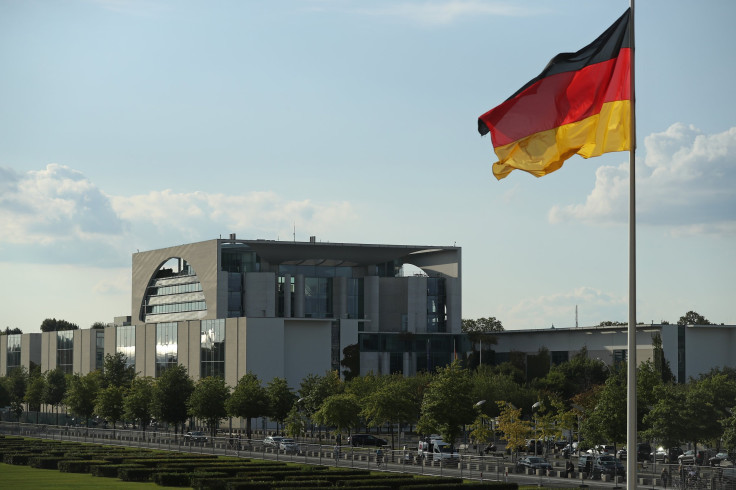Germany News: Europe's Biggest Economy Could Face Recession As Trade War, Brexit Woes Persist

During the second quarter, Germany's economic growth shrank, suggesting that Europe's manufacturing powerhouse could face recession amid global trade wars and a potential no-deal Brexit.
Germany's GDP contracted 0.1% compared to the previous quarter, the German Federal Statistics Office said Wednesday.
Carsten Brzeski, the chief German economist at the Dutch bank ING, said today's GDP report "definitely marks the end of the 'golden decade' for the German economy."
Germany is heavily reliant on exports and its economy is also dominated by small or medium-sized manufacturing firms, known as the "Mittelstand" in German. The economy has taken a hit due to China's economic slowdown wracked by President Trump's tariffs and weak global auto sales.
Last year, China was the third-largest export market for Germany after the United States and France.
German firms are also anxious about the potential of a no-deal Brexit, which could have a major impact on German exports to the U.K.
Alex Altmann, the co-chairman of the British Chamber of Commerce in Germany, said that "A no-deal Brexit with customs barriers, regulatory diversion and uncertainty around immigration will cost the German economy about 1% of GDP with the potential of 200,000 job losses, which could move the country into a recession in the fourth quarter of this year."
Capital Economics, an economic research consultancy firm based in the United Kingdom, said that the German government could use a small fiscal stimulus to boost the economy, but that the government doesn't want to risk going into debt to do so. The firm said that the Germans could try to rely on help from the European Central Bank (ECB), to "try to shore up demand and boost inflation."
Germany has had a relatively strong economy throughout most of the last 14-15 years, with the country even withstanding the 2008 financial crisis that crushed southern European countries such as Greece and Spain. However, the country was often referred to as the "sick man of Europe" during the 1990s all the way up to around 2005, which was coincidentally the first year of Angela Merkel's time as chancellor.
In 2005, Germany's unemployment rate hit 12.6%, with the country also facing a budget deficit at 3.5% of GDP. Although Merkel is often credited for the country's economic success, it could be possibly that her predecessor Gerhard Schroeder, who championed pro-market reforms, had the biggest impact on Germany's economic revival.
© Copyright IBTimes 2024. All rights reserved.





















